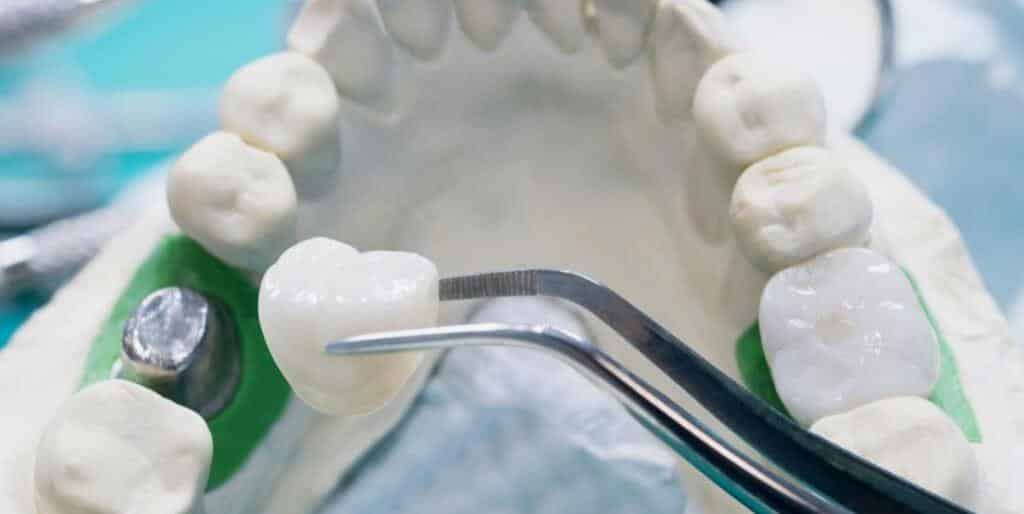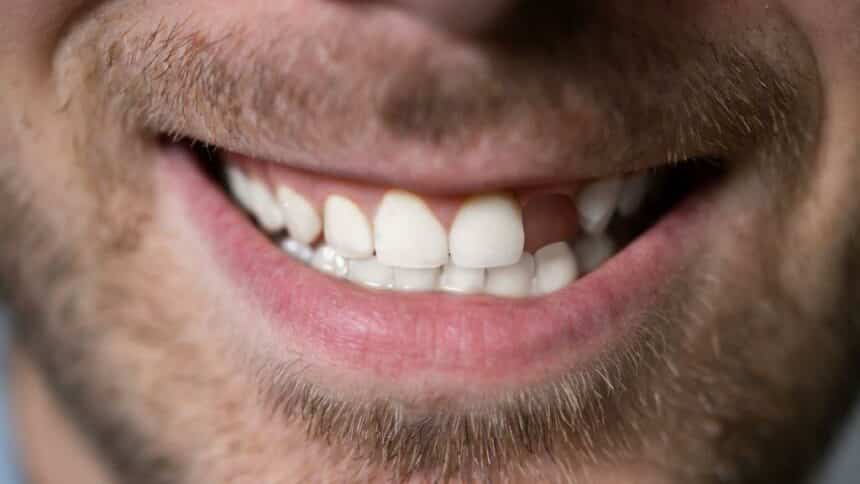It may seem that a missing tooth, especially if the cavity is not visible when smiling, is nothing dangerous and you just have to get used to it. However, an unfilled gap after an extracted tooth can quickly become the cause of loosening or even loss of adjacent teeth. It also causes the development of decay, headaches and problems with chewing food.
Missing a tooth - why it can be detrimental to your health
Sometimes, for various reasons, a tooth is not suitable for further treatment and the dentist decides to extract it. If this happens, you should already be thinking about filling the gap left by the tooth after the procedure. Why? Because over time, alveolar atrophy and permanent changes to the alveolus can occur.
IMPORTANT! Even a single cavity contributes to the development of caries, recurrent inflammation in the mouth or the loosening and consequent falling out of adjacent teeth.
In addition, missing teeth result in displacements in the remaining teeth, which begin to take over the role of the missing ones. As a consequence, unwanted interdental gaps (so-called diastemas) may appear. The missing tooth also leads to a different jaw position during meals. This in turn affects the temporomandibular joints and often causes pain in the ear and jaw area.
If you are experiencing chronic headaches, a retained tooth may be the cause. You can read more about this topic in our article - Retained tooth - what exactly is it and does it always need to be removed?

How do you fill a gap left by a tooth?
The best method used in recent years to fill the gap left by an extracted tooth is the placement of an implant. This is not a cheap solution and requires several visits to the dentist's surgery. It does, however, provide long-lasting results in the form of a tooth that imitates the natural dentition and is resistant to decay-causing bacteria.
If you are wondering how to fill the gap left by a tooth, an implant is something you should definitely consider. Want to know more? Read the article Implants in the UK - everything you need to know.
Implant, which is actually what?
An implant is a titanium screw implanted in the jaw, which acts as a root and, over time, fully fuses with the jawbone to provide permanent support for the crown. This is fitted to the implant using a special abutment. The crown can be made of porcelain, the advantage of which is that the colour of the tooth can be matched perfectly to the others, or of an extremely durable mineral called zirconia.
The entire implant process takes 3 to 6 months and requires a consultation with your dentist, the exclusion of contraindications such as diabetes, pregnancy or tumours, and the selection of a suitable implant and crown. You should also have your other teeth treated before the implant procedure takes place.
Healthy teeth are not only important when you are planning implants in the UK. Why? Decayed teeth are a danger to the health of the whole body - Find out more in our article.

Implants in the UK - how much does it cost?
An implant is not the cheapest solution, but in retrospect it pays off, as the one-off cost will no longer generate the expense of treating the tooth in the future.
How much your tooth implant will cost, You will find out after the initial consultation. This is because the price of the implant will depend on the procedures to be followed. Certainly, three costs must always be counted - the implant, the abutment and the crown. The price is also affected by the possible need for other procedures such as bone regeneration.
The price of an implant in the UK will also depend on which crown you choose. Zirconia will be more expensive but virtually indestructible, while porcelain will be cheaper and last for many years. It is best to consult your dentist about the choice of implant, as the type will also depend on its location.
One thing is certain, the implant is currently the most durable and natural solution if your problem is a missing tooth. A tooth reconstructed in this way will serve you for years.
Do you have questions? Write to us or Call.

Missing a tooth is not a problem - an implant on hire purchase
Although implants are not a cheap solution, remember that you do not have to pay the entire amount at once. At our practice, you can pay in instalments. If you are interested in this topic, please read our article Teeth on credit: dental treatment on hire purchase or Call to us.
Importantly, our instalment system is 100% secure and regulated by the Financial Conduct Authority (FCA number 619628).

